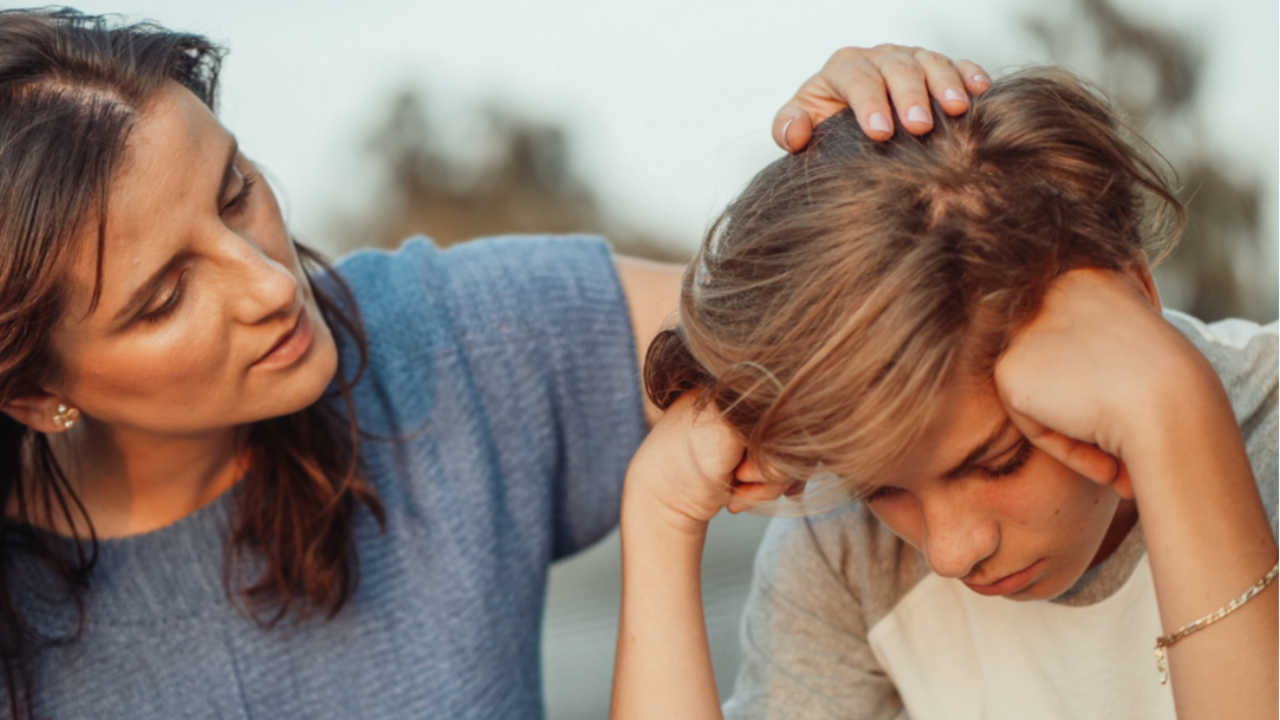
Yay, we've made it to part 3! Let’s apply all this info about stress & stress eating to helping our kids. Yes, our kids experience stress eating. They are stressed.
And as long as we are targeting the emotional (aka stressed) eating - the eating part, we are missing the opportunity to actually address the stress which is creating this cascade in the first place.
What does stress look like for kids?
Well, let’s start with defining it: Stress is a state of worry or mental tension caused by a difficult situation (at least according to the World Health Organization).
That tells us nothing about what a particular stress looks like. And it doesn’t speak to something we need to remember from the start: stress is normal. Stress is a normal human response that can help us to address challenges, threats, and novelty in our lives.
Stress is growth, newness, uncertainty, worry, seeing a challenge and not knowing if you can do it…
That sure sounds like growing up.
Yup. We are all stressed - some stress is the “good stress” of being human:
Uncertainty, growth, not knowing til you experience it, excitement…
Our kids are stressed as they grow. In the classic teaching of stress, it helps us grow. Consider trees: a light breeze passes through and their branches and trunk flows in the wind. When a storm comes by with much stronger winds, they are stressed more, and yet grow back stronger.
Another analogy: Bones are stronger because they are under the stress of gravity, movement, jumping. All of that activity and stress actually increases bone deposition. Bones become weaker when they are not stressed, when resting, immobilized by injury or illness.
And yet, stress can be too much. We don’t know what it looks like, but it in this day and age, we need to come back to the contrast of what we think is stressing (aka the old sabre-toothed tiger) - vs today’s mental burdens.
Our kids have varied stressors, including school work, community and environmental pressures, anxiety, the replay of conversations, bullying, fear of humiliation or not belonging, social media, body image concerns and diet-messaging.
You can’t necessarily tell that any particular person is stressed, especially not early-on. The outputs are still there, they act and perform as normal, but unless they are being fueled with having their needs met, there is a risk of the stress showing more and more over time.
While we can feel stressed, so often we don’t know what to do with it. But we don’t like the feeling, so we either try to get away from the feeling (and find distraction or comfort elsewhere), or over time we start internalizing that there is something wrong with us for feeling stressed.
Kids don’t necessarily have the words to describe what they are feeling or experiencing.
That's where we as parents have the opportunity to help:
- Be aware that stress is a part of our lives, including our kids’ lives
- Get curious: What are the patterns
- Be present to receive whatever they have to share, aka shush and LISTEN.
- Listen to what the kids need: what’s being said, what’s not said?
- Stress is often brought back to one thing: a fear of not belonging. Or being accepted. Not being…. Enough. We ask ourselves a powerful, yet crappy, question: "WHAT IS WRONG WITH ME?" There is nothing wrong. The better question we can learn (and model as parents) is "What do I NEED?"
- NOTICE: there will be an intense desire to fix the stress. We don’t want our kids to experience discomfort of any type. But that is not the answer. The real challenge for us as parents is to become aware of our kids’ stressors, acknowledge them, and then be there with them as they navigate it. That is how the stressors become growth opportunities. While we will all come up with exceptions where we will definitely want to fix, notice that. It’s our parental protection coming in. And the more that we can practice being there with our kids during the stress, and as they work their way through it, the more that they develop the tools for managing their own stress.
- It’s all about neuro-biology. It’s our brains. We are hardwired for connection. And stress activates our threat-awareness center: How am I at risk? How do I not belong? What is wrong - and what is wrong with me? A parent who is there with their child through this process can model how there is nothing wrong with them, they belong, and have support as they work through this growth process.
Geez - it’s what I need as an adult, as a parent, as a human too: To remind myself I am ok, I belong, I am safe, I am growing. That’s compassion for the stress, understanding that it is there, and we are working through it. That is what we can offer our children so they can process and grow through the stress too.
Calling all Healthcare Professionals: I'm so glad you're here, to benefit yourself, your family, and your patients. The CE experience for this Podcast is powered by CMEfy - click here to reflect and earn credits: https://earnc.me/fBvzBX
Check out the Family in Focus with Wendy Schofer, MD Podcast!
Stay connected with news and updates!
Join our mailing list to receive the latest news and updates from our team.
Don't worry, your information will not be shared.
We hate SPAM. We will never sell your information, for any reason.


